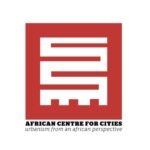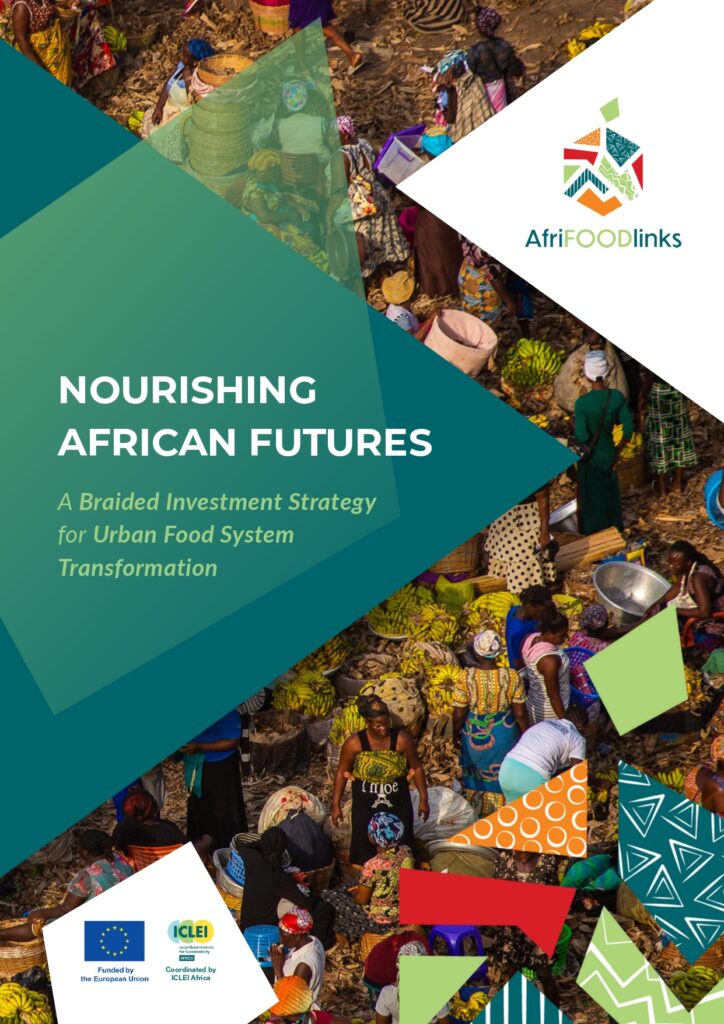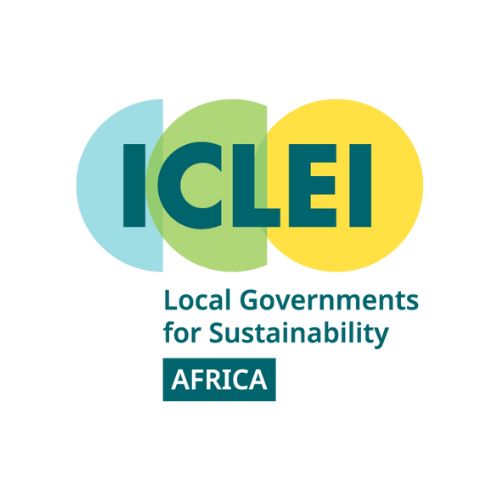Home » Explore the latest project news » Reclaiming urban food systems in Africa
Reclaiming urban food systems in Africa
A new epistemological approach
Engaging with food insecurity has long been a global concern, particularly in the fields of development, health, food systems, and agriculture. Famines, conflicts, and various socio-economic factors have regularly hindered efforts to address food insecurity. Over the past 80 years, our understanding of food insecurity has evolved significantly: While initially focused primarily on production and availability, our understanding of food security now includes aspects such as accessibility, utilisation, stability, sustainability, and agency. Despite these advancements, old perceptions of hunger in Africa continue to shape approaches to food system challenges on the continent, particularly as food insecurity remains framed as a predominantly rural issue.
Rethinking research and methodology
The most recent research on urban food security in Africa represents a significant shift from global and national scales to the urban context. However, these new perspectives are often framed from a Global North viewpoint, posing a critical question for African urban food systems scholars: How can African urban food security research recenter its methodologies, pedagogies, and power dynamics to build on the unique insights from African urban contexts?
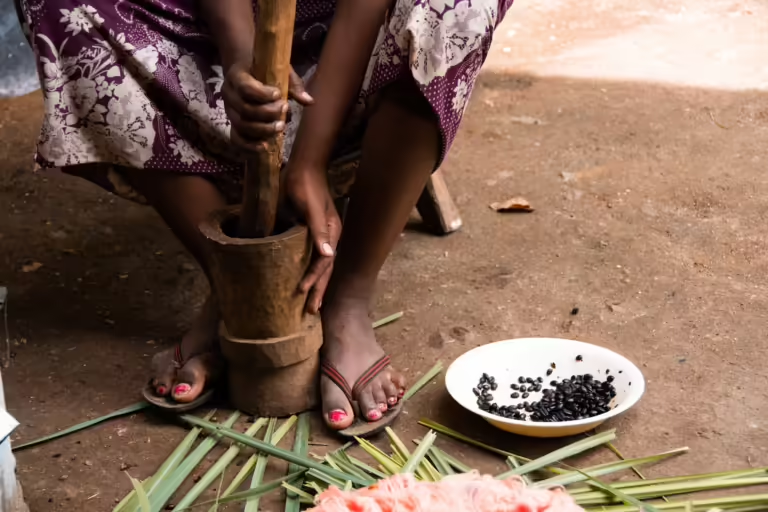
To effectively address the urban food system challenges in Africa, we must ask new questions and employ methodologies that suit urban Africa. African researchers must critically evaluate their positions and the concepts they have been taught, recalibrating them where necessary.
Such reflection is not new: Many African thinkers have long called for a re-examination of current epistemologies. They argue for the need to assess what has value, what needs adaptation, and what can be uniquely offered by African urban scholarship to global debates.

AfriFOODlinks: Building resilient urban food systems through African knowledge
Guided by this ethos, the AfriFOODlinks project, particularly its Knowledge Generation component, aims to build an action-oriented knowledge base through multi-stakeholder collaboration, essential for shaping resilient urban food systems in African cities. Central to this initiative is the application of African knowledge to transform urban food systems. The project has gathered diverse organizations and individuals to create evidence that can improve food environments and inform policy development.
A foundational approach of AfriFOODlinks is to prioritise African knowledge. The goal is not to dismiss other knowledge but to elevate African perspectives deliberately to ground the work in context and validate the knowledge inherent in African cities. This knowledge extends beyond academic research to include the rich, contextual knowledge of African communities.
AfriFOODlinks’ Knowledge Generation adopts a phased approach to research:
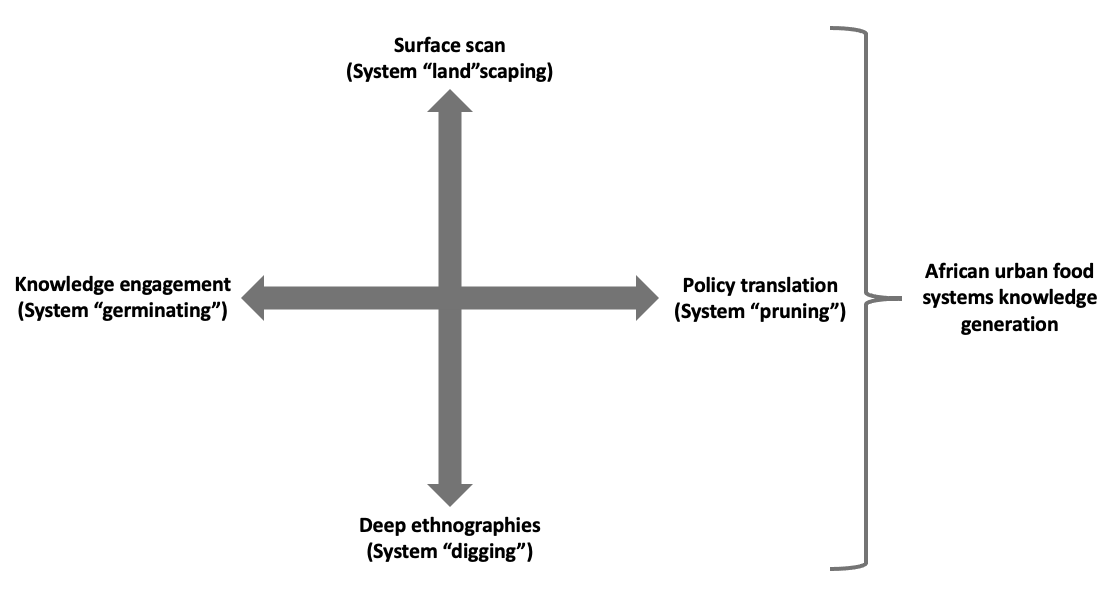
“What next?”
African cities are developing at an unprecedented pace. The cities that will exist in 30 years are largely yet to be built. How we navigate this urban transition is critical. It is the collective responsibility of Africans, researchers, and society to shape the future trajectory. As African urban scholar Edgar Pieterse pointed out, the next two to three decades will be formative for Africa’s urban development: “The demographic clock is ticking and the next two to three decades will define the urban transition on the continent… This assumes greater urgency for Africa because the urban transition of the next few decades will be formative of future developmental opportunities on the continent.”
Reorienting knowledge to African urban contexts requires more than cognitive shifts among academics. The entire structure of academia and policy making, built on extractive power dynamics, must be critically examined. AfriFOODlinks seeks to seed change by asking new questions and challenging existing positions. Prof. Mark Swilling, Co-director of the Centre for Complex Systems in Transition at the University of Stellenbosch, South Africa has suggested that “the most radical person in the room is not the one who claims to have understood the fundamental contradictions …, but rather is the one who asks: What next?” It is the work of the Knowledge Generation to engage and understand the contradictions, asking “What next?”
While the project does not aim to create lasting structural change overnight, it endeavors to build the foundation for new knowledge, policies, actions, and governance processes that facilitate a transition to a more equitable food-secure urban Africa.
The journey is complex and the stakes are high, but by asking the right questions and employing contextually relevant methodologies, African urban food system researchers can contribute significantly to global food security debates. The future of African cities depends on our ability to navigate this transition thoughtfully and effectively.
Explore
"Research"

Read more about
"Research"
READ MORE
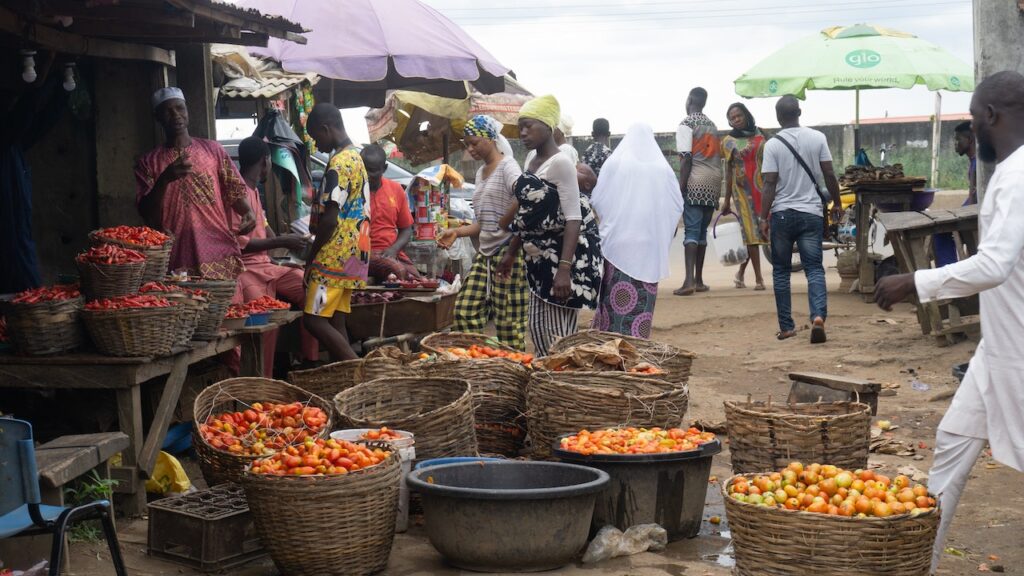
Cultivate Marketplace for transforming African urban food systems: Building bridges between cities and global funders
Unlike a traditional pitch event, the Marketplace will create a structured, low-risk space where cities and funders can learn from one another, exchange insights, and explore alignment.

